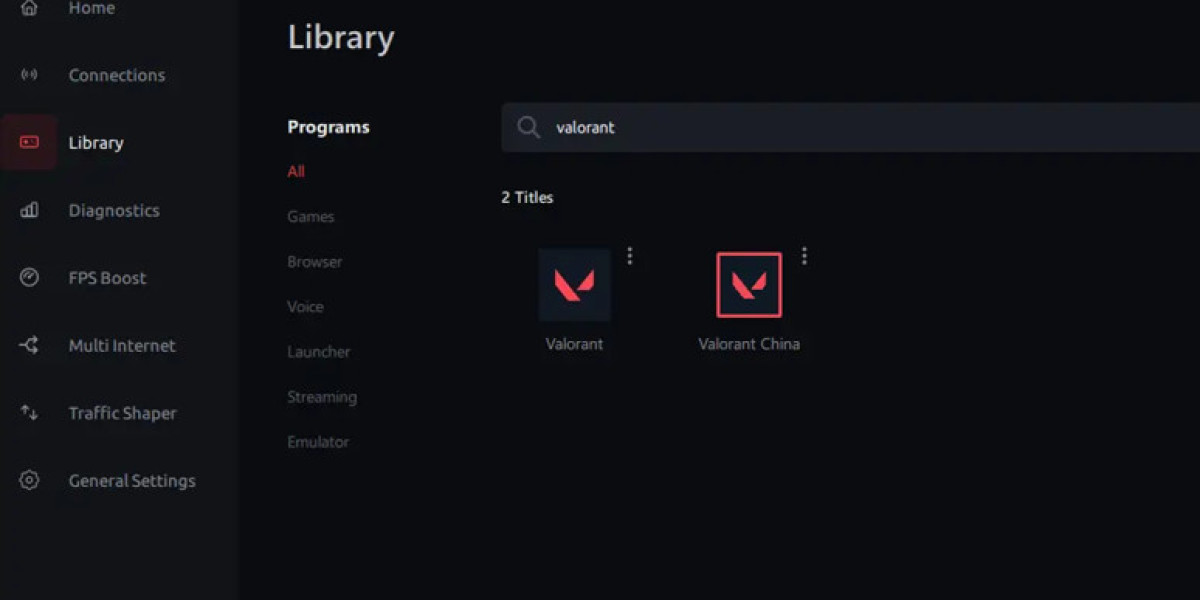Explore the realities of cheap web hosting in Nepal, its hidden costs, and how to find value. Discover insights into reliable providers and the growing trend of Windows VPS hosting companies in Nepal.
In Nepal's rapidly expanding digital landscape, the allure of "cheap web hosting" is undeniable. For individuals, small businesses, and startups, budget-friendly options can seem like the perfect entry point to establish an online presence without significant upfront investment. However, the term "cheap" often comes with a set of compromises that, if not carefully considered, can lead to long-term frustrations, performance issues, and even significant hidden costs. This comprehensive article aims to demystify cheap web hosting in Nepal, explore the delicate balance between affordability and quality, and delve into the specific considerations for those seeking a "windows vps hosting company in nepal" at a competitive price point.
The Appeal and the Reality of "Cheap Web Hosting in Nepal"
The promise of extremely low prices can be very tempting. Many web hosting companies in Nepal actively market their "economic," "starter," or "unlimited" plans at seemingly irresistible annual rates. These plans typically fall under the category of shared hosting, where hundreds, sometimes thousands, of websites reside on a single server, sharing its resources.
The Common Pitfalls of Overly Cheap Hosting:
While attractive on paper, overly cheap web hosting can come with significant drawbacks:
Performance Bottlenecks:
Overcrowded Servers: The primary way providers offer extremely low prices is by cramming as many websites as possible onto one server. This leads to shared resources (CPU, RAM, I/O) being stretched thin.
Slow Loading Times: When server resources are overloaded, your website will load slowly. This directly impacts user experience (leading to high bounce rates) and negatively affects your search engine rankings, as Google prioritizes fast-loading sites.
Frequent Downtime: Overloaded servers are prone to crashes and unexpected downtime. A website that is frequently offline loses credibility and accessibility.
Limited Resources and "Unlimited" Deceptions:
Hidden Limits: While some plans might advertise "unlimited bandwidth" or "unlimited storage," these often come with "fair usage" policies or inode limits (number of files and folders). Exceeding these unstated limits can lead to suspensions or forced upgrades.
Insufficient Disk Space & Bandwidth: Even if explicitly stated, the allocated disk space (often a few hundred MB to a few GB) and monthly bandwidth might be barely adequate for a basic brochure website, let alone a growing blog or e-commerce store.
Security Vulnerabilities:
Shared Environment Risks: In a shared hosting environment, a security breach on one website can potentially affect others on the same server. Cheap providers may not invest heavily in robust security measures.
Outdated Software: They might run older, less secure versions of server software (PHP, Apache, MySQL) due to the cost of maintenance and updates.
Lack of Proactive Monitoring: Less investment in monitoring means potential threats might go unnoticed for longer windows vps hosting company in nepal.
Limited Backup Solutions: While some offer "free backups," these might be infrequent or difficult to restore, leaving your data vulnerable.
Subpar Customer Support:
Slow Response Times: Expect delays in getting assistance, as support teams might be small or outsourced.
Limited Channels: Support might be restricted to tickets or email, with no live chat or phone options for immediate help.
Lack of Expertise: Support staff might lack the in-depth technical knowledge to resolve complex issues effectively.
Lack of Scalability:
Difficulty Upgrading: As your website grows, you'll inevitably need more resources. Migrating from a very cheap shared host to a more robust solution can be a difficult and time-consuming process.
Limited Options: The provider might not offer higher-tier plans like VPS or dedicated servers, forcing you to switch providers entirely.
Hidden Fees and Upsells:
Introductory Pricing: Many cheap plans have very low initial prices that dramatically increase upon renewal.
Add-on Costs: Features often marketed as "free" by reputable hosts (like SSL certificates, daily backups, dedicated IP addresses, or certain email features) might be paid add-ons with cheaper providers.
Finding Value in "Cheap Web Hosting in Nepal": What to Look For
While it's important to be wary of rock-bottom prices, there are reputable "web hosting companies in Nepal" that offer genuinely good value for money. The key is to find providers that balance affordability with essential features and reliable performance.
When evaluating seemingly cheap hosting plans, consider these crucial factors:
Transparency in Pricing: Always check the renewal rates. A provider offering a low introductory price should clearly state the renewal cost.
Resource Allocation: Look for specific allocations of disk space (preferably SSD/NVMe), RAM, and CPU. Avoid vague "unlimited" claims unless they are backed by a transparent fair usage policy.
Essential Features Included:
Free SSL Certificate: Absolutely essential for security and SEO.
cPanel/Plesk: A user-friendly control panel makes managing your website much easier.
Automated Backups: Daily or weekly automated backups are critical for disaster recovery.
One-Click Installer: For popular CMS platforms like WordPress, Joomla, or Drupal.
Email Accounts: Sufficient number of email accounts with your domain name.
Uptime Guarantee: Look for a clear uptime SLA (Service Level Agreement) of 99.9% or higher.
Customer Support: Even if it's cheap, basic support via ticketing or email should be responsive within a reasonable timeframe. Check reviews regarding their support quality. Local support in Nepali can be a big plus.
Server Location: For better speed and SEO in Nepal, prioritize providers with servers in Nepal or geographically close regions (e.g., India).
Scalability Path: Does the provider offer easy upgrades to higher plans (like VPS or dedicated servers) if your website grows? This avoids the hassle of migration.
Reputation and Reviews: Search for reviews from other users in Nepal. Platforms like Reddit (r/technepal) or local tech forums can offer valuable insights.
The Rising Trend: "Windows VPS Hosting Company in Nepal"
While shared hosting is typically the cheapest entry point, many users and businesses find they quickly outgrow its limitations. This often leads them to Virtual Private Server (VPS) hosting, which offers a significant upgrade in performance, control, and security at a more accessible price point than dedicated servers.
Among VPS options, the demand for a "windows vps hosting company in nepal" is particularly trending. This is driven by specific technical requirements and user preferences:
Microsoft Technologies: Businesses and developers who primarily work with Microsoft's ecosystem need Windows servers. This includes applications built with ASP.NET, databases running on MSSQL (Microsoft SQL Server), or environments requiring specific Windows server features.
Familiarity and Ease of Use: For many users accustomed to the Windows operating system on their desktops, managing a Windows Server environment via Remote Desktop Protocol (RDP) feels more intuitive and less daunting than command-line Linux environments.
Specific Software Compatibility: Certain legacy or proprietary software might only run on Windows Server, making a Windows VPS a necessity.
Remote Work Desktops: Some businesses use Windows VPS for remote desktop access for their employees, creating a centralized, secure work environment.
What Makes a Good "Windows VPS Hosting Company in Nepal" (Even if Cheap):
If you're looking for an affordable Windows VPS, here are specific points to consider:
Proper Licensing: Ensure the provider uses legitimately licensed Windows Server operating systems. Unlicensed software is illegal and poses severe security risks.
Resource Allocation: Pay close attention to the allocated CPU cores, RAM, and storage (preferably SSD/NVMe). Windows Server generally requires more resources than Linux for optimal performance.
Guaranteed Resources: A true VPS means dedicated resources. Avoid providers that oversell their VPS nodes, which can lead to performance degradation.
Windows Server Versions: Check which versions of Windows Server they offer (e.g., 2012, 2016, 2019, 2022). Newer versions offer better performance, security, and features.
RDP Access and Control: Ensure you get full administrative RDP access to your VPS. This gives you complete control over your server environment.
Plesk Panel (Optional): While not always included in the cheapest plans, a Plesk control panel can greatly simplify managing websites, databases, and emails on a Windows VPS.
Backup and Recovery: Understand their backup policies for Windows VPS instances. Are daily backups included? How easy is it to restore?
Technical Support for Windows: Verify that their support team has experience and expertise in troubleshooting Windows Server issues, ASP.NET, MSSQL, and other Windows-specific technologies.
Network Performance: While a Windows VPS offers dedicated resources, the underlying network infrastructure is still crucial. Look for a "windows vps hosting company in nepal" that invests in robust network connectivity.
The "Hidden Cost" of "Cheap": An Important Caveat
It's crucial to understand that while "cheap" can be good value, "too cheap" often hides significant costs. These hidden costs aren't always monetary; they can manifest as:
Lost Revenue: Due to frequent downtime or slow loading speeds, deterring potential customers or readers.
Damaged Reputation: A slow, insecure, or frequently unavailable website severely harms your brand's credibility.
Wasted Time: Spent troubleshooting issues, dealing with unhelpful support, or migrating to a new host when the "cheap" option fails.
Security Breaches: Leading to data loss, malware infections, and potential legal ramifications.
SEO Penalties: Google penalizes slow and unreliable websites, affecting your organic search rankings.








